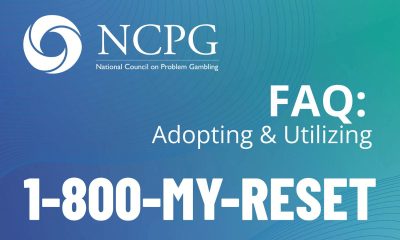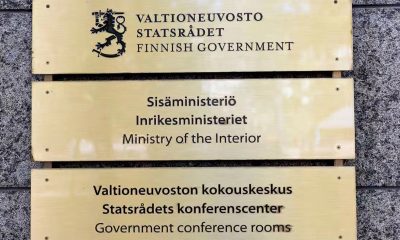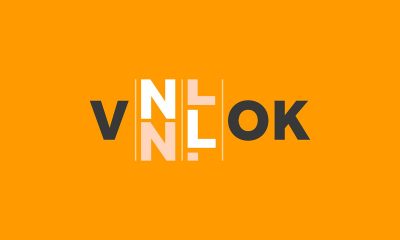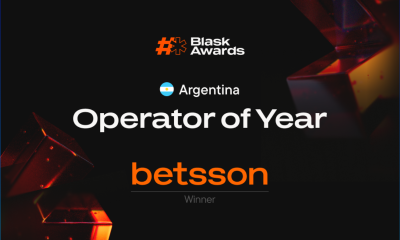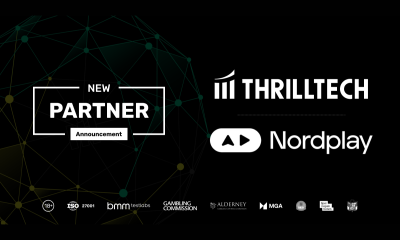Compliance Updates
Navigating Compliance and Global Expansion: Endorphina’s Journey in the iGaming Industry

HIPTHER, the organizer of the Prague Gaming & TECH Summit 2025, is delighted to welcome Endorphina as the Awards Party Sponsor and a leading force in the iGaming sector. In this exclusive interview, we speak with Džangar Jesenov, Corporate Compliance Manager at Endorphina, to explore the company’s recent achievements, including new market entries, rigorous security certifications, and their strategic focus on the LATAM region.
Endorphina recently secured authorization as a supplier of online slot games in Peru and obtained B2B licenses in Sweden and Denmark. What were the key challenges in achieving these milestones, and how do they align with your broader market expansion strategy?
Yes, it’s true—we are now officially authorized as a supplier in Peru, Sweden, and Denmark. Expanding into these regulated markets was a carefully structured process that required thorough preparation and deep regulatory understanding.
From a compliance perspective, we dedicated nearly 11 months to analyzing each market, studying regulatory frameworks, and engaging directly with local authorities. This hands-on approach allowed us to interpret legal details correctly and streamline our applications. Once we completed our groundwork, our submissions proceeded as planned, reflecting our meticulous preparation and proactive strategy.
These expansions are part of our long-term vision to strengthen our global presence, ensuring that Endorphina remains at the forefront of regulated gaming. By entering these strategic jurisdictions, we continue to build a trusted brand that delivers premium, compliant, and innovative gaming experiences.
Endorphina completed an ISO 27001 security certification audit, a significant achievement in information security. Can you provide more details about it, and share how this certification impacts your operations in terms of data security and compliance
Security has always been a top priority for us—not just for compliance reasons but because we believe in building trust with our partners and players.
Our decision to pursue ISO 27001 certification was driven by our commitment to establishing the highest security standards across all operations.
Rather than adapting to individual country regulations piecemeal, we chose the most rigorous and internationally recognized approach: an overarching Information Security Management System (ISMS) that meets global best practices. This certification reinforces the security of our infrastructure, protecting both operator partners and players.
Achieving ISO 27001 is a reflection of years of experience and expertise within our compliance team. By implementing this standard, we future-proof our systems against evolving security threats while ensuring seamless compliance across multiple jurisdictions. Now, our partners know that when they work with Endorphina, they’re working with a provider that takes security seriously and operates at the highest level of integrity.
You recently concluded successful security audits in Spain, Italy, Argentina, and Denmark. How do you navigate the diverse compliance requirements across these regions, and what best practices would you share with other iGaming businesses?
Each country has its own regulatory framework, but ultimately, they all share a common goal: ensuring player protection and responsible gaming.
One of the most valuable lessons we’ve learned is that proactivity is key. Instead of reacting to regulatory changes at the last minute, we focus on staying ahead by implementing strong security standards that align with global best practices.
Here are three key best practices we follow at Endorphina:
– Think from the player’s perspective – A safe and fair gaming environment should always be the priority. Our compliance decisions are made with player security and trust in mind.
– Establish a strong, unified security framework – Rather than adapting compliance measures market by market, we implement a universal security model (ISO 27001) that seamlessly integrates into different regulatory landscapes.
– Invest in people – Compliance isn’t just about policies; it’s about the expertise and dedication of the team. Continuous education, adaptation, and training are key to staying ahead of ever-changing regulations.
That’s why for me, and I’m sure for many people on my team as well, compliance is more of a craft than just a job.
Endorphina concluded the year with a strong focus on the LATAM region, achieving certification as one of the first suppliers of online slot games in Brazil. What opportunities does this milestone present, and how do you plan to further strengthen your presence in the region?
The LATAM region has been a long-term focus for Endorphina, and we have been expanding into these markets for several years. Argentina and Colombia were among the first jurisdictions where our games became highly popular, and Brazil was the next strategic step in our expansion.
With Brazil’s regulatory framework evolving, we saw an opportunity to leverage our experience from other regulated markets to establish a strong foothold early on. Being one of the first authorized slot suppliers in the country is a huge achievement, as it positions us as a trusted provider in a highly competitive market.
Looking ahead, we plan to actively grow our footprint in LATAM by:
– Expanding our certified game portfolio – We already have 83 games certified for Brazil, and this number will continue to grow.
– Strengthening partnerships with local operators – By offering localized content and tailored marketing support, we ensure our games resonate with Brazilian players.
– Adapting to new regulations – As Brazil tightens its iGaming laws, we expect greater regulatory enforcement, which will increase market stability and further strengthen licensed operators and suppliers like Endorphina.
Our goal is clear: to be a leading force in LATAM’s regulated iGaming market, delivering premium, compliant, and engaging gaming experiences.
At the Prague Gaming & TECH Summit 2025, you will be speaking on the panel “Navigating the Maze: iGaming Compliance Across CEE”. Can you give us a taste of the key insights you’ll be sharing with the audience?
I’m really looking forward to the Prague Gaming & TECH Summit 2025—it’s always a fantastic opportunity to reconnect with industry friends and exchange insights.
My main focus will be sharing practical, real-world compliance strategies that can help operators and suppliers navigate regulatory complexities across Central and Eastern Europe (CEE). I expect there will be a lot of discussion around market-specific compliance challenges, particularly in the Czech Republic and across the EU.
Rather than delivering a one-way presentation, I want this to be a dynamic and interactive discussion. My goal is to create a space for open dialogue, where attendees can ask direct questions, share their own experiences, and gain practical takeaways that they can apply in their own businesses.
Compliance is constantly evolving, and my mission is to make it accessible, insightful, and—dare I say—exciting for everyone attending the panel! 😊
With Endorphina at the Prague Gaming & TECH Summit 2025, this year’s event promises invaluable insights into compliance across CEE and the evolving iGaming market. Don’t miss the opportunity to connect with industry leaders, gain exclusive market perspectives, and be part of the most dynamic gathering in the CEE region!
Join us on 25-26 March 2025 in Prague – Register now and explore the full agenda!
The post Navigating Compliance and Global Expansion: Endorphina’s Journey in the iGaming Industry appeared first on European Gaming Industry News.
Compliance Updates
Digitain Secures Isle of Man iGaming Software Supplier Licence

Digitain has successfully secured an Isle of Man software supplier license.
This reflects the value Digitain has placed on stable institutions, credible oversight and long-term regulatory certainty — evidencing a clear signal that the Island remains a tier-one jurisdiction for serious, long-term gaming technology businesses.
Granted by the Isle of Man Gambling Supervision Commission (GSC), with Cavendish Trust and Digital Isle of Man supporting Digitain throughout the process, the licence further deepens the Island’s regulated supplier base and reinforces the Isle of Man’s proposition: a mature, well-regulated jurisdiction with a collaborative, high-standards approach to doing business.
Digitain is a leading global supplier of sportsbook and gaming technology to operators across multiple regulated markets, supporting both online and retail betting. With more than two decades of industry experience, the company is recognised for its scale, technical capability and enterprise-grade approach — making its decision to secure an Isle of Man licence a strong endorsement of the Island’s regulatory credibility and long-term stability.
Tim Johnston MHK, Minister for Enterprise, said: “Digitain is a significant player in the global iGaming industry, and its decision to secure an Isle of Man licence is a strong vote of confidence in the Island’s regulatory credibility and long-term stability. It demonstrates that the Isle of Man continues to attract serious, enterprise-scale technology providers who value high standards and regulatory certainty. We remain committed to supporting a future-focused iGaming sector that delivers sustainable, long-term economic value for the Isle of Man.”
With more than 20 years as a leading iGaming jurisdiction, the Isle of Man is recognised for proportionate, risk-based regulation, political and economic stability, and strong cooperation between Government, the GSC and industry — a combination that continues to attract high-quality businesses seeking a trusted base for regulated growth.
Shaun Corris, Director at Cavendish Trust, said: “We would like to congratulate Digitain on securing its Isle of Man licence. Supporting Digitain through the licensing process highlighted both the strength of the business and the calibre of the jurisdiction. Digitain’s decision to secure an Isle of Man licence reflects the Island’s continued appeal to established, international iGaming technology providers seeking long-term credibility and stability.”
Aida Vardanyan, Director within the Digitain group said: “The Isle of Man represents one of the most credible and mature iGaming jurisdictions globally and working under the oversight of the Isle of Man Gambling Supervision Commission has reinforced our confidence in the Island as a long-term base for our regulated operations.”
“The licensing process of Digitain’s Isle of Man entity, Blue Whale Limited, was rigorous, transparent, and constructive, reflecting the depth of regulatory expertise and institutional stability that the Isle of Man is known for. Cavendish Trust played a central role in this journey, providing exceptional guidance, regulatory insight, and operational support throughout the process. Their experience, professionalism, and deep understanding of both the jurisdiction and the global iGaming landscape were instrumental in achieving this milestone, and we look forward to continuing our partnership as we grow our regulated business from the Isle of Man.”
The post Digitain Secures Isle of Man iGaming Software Supplier Licence appeared first on Eastern European Gaming | Global iGaming & Tech Intelligence Hub.
Compliance Updates
National Council on Problem Gambling Adopts 1-800-MY-RESET as New National Problem Gambling Helpline Number
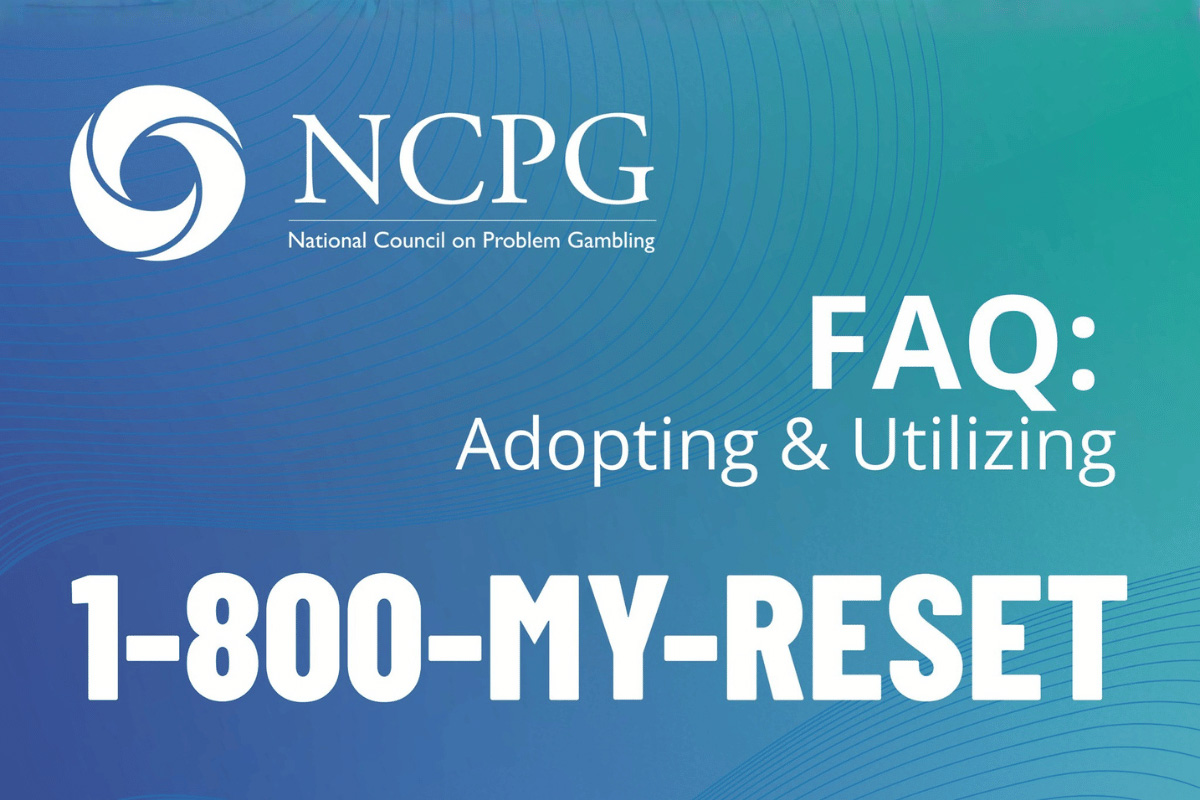
The National Council on Problem Gambling (NCPG) announced it has adopted 1-800-MY-RESET as the new National Problem Gambling Helpline number, designed to be memorable and easily accessible for the public. 1-800-MY-RESET is now live and operational to receive calls.
The adoption of the new number strengthens national visibility for the Helpline and supports NCPG’s ongoing network modernization efforts. 1-800-MY-RESET is neutral, non-stigmatizing, and user-defined, signaling that individuals can reach out for support at any point in their relationship with gambling. Calls to 1-800-MY-RESET will connect individuals to the National Problem Gambling Helpline Network, which serves as a single point of access to 24 contact centers across the US, staffed by trained professionals who meet internationally recognized helpline quality standards. The National Problem Gambling Helpline is available 24/7, is free and confidential, and provides support and referrals to local resources.
“Problem gambling support should never be limited to a single moment or a single definition of harm. 1-800-MY-RESET reinforces that the National Problem Gambling Helpline is available at any stage—whether someone is worried about themselves, concerned about a family member, or simply looking for trusted guidance. Making the Helpline number easier to remember is a practical, meaningful step toward reducing barriers to care,” said Derek Longmeier, President of the NCPG Board of Directors.
Nearly 20 million U.S. adults report experiencing at least one indicator of gambling-related harm in the past year, according to NCPG research. As legal gambling continues to expand across the US, NCPG is committed to ensuring help for a gambling problem is always available and accessible. Improving the memorability of the National Helpline number is part of a broader public awareness strategy to mitigate gambling-related harm by educating communities, reducing stigma, and bringing gambling addiction to the forefront of public health efforts nationwide.
“With gambling now more accessible than ever, the National Problem Gambling Helpline is a critical lifeline. Making the number easier to remember helps ensure people across the country can quickly connect with high-quality, confidential support when they need it,” said NCPG Executive Director Heather L. Maurer, MA, CAE.
The post National Council on Problem Gambling Adopts 1-800-MY-RESET as New National Problem Gambling Helpline Number appeared first on Americas iGaming & Sports Betting News.
Compliance Updates
Finland Govt Looks at Whether Scratchcards can be Gifted Again
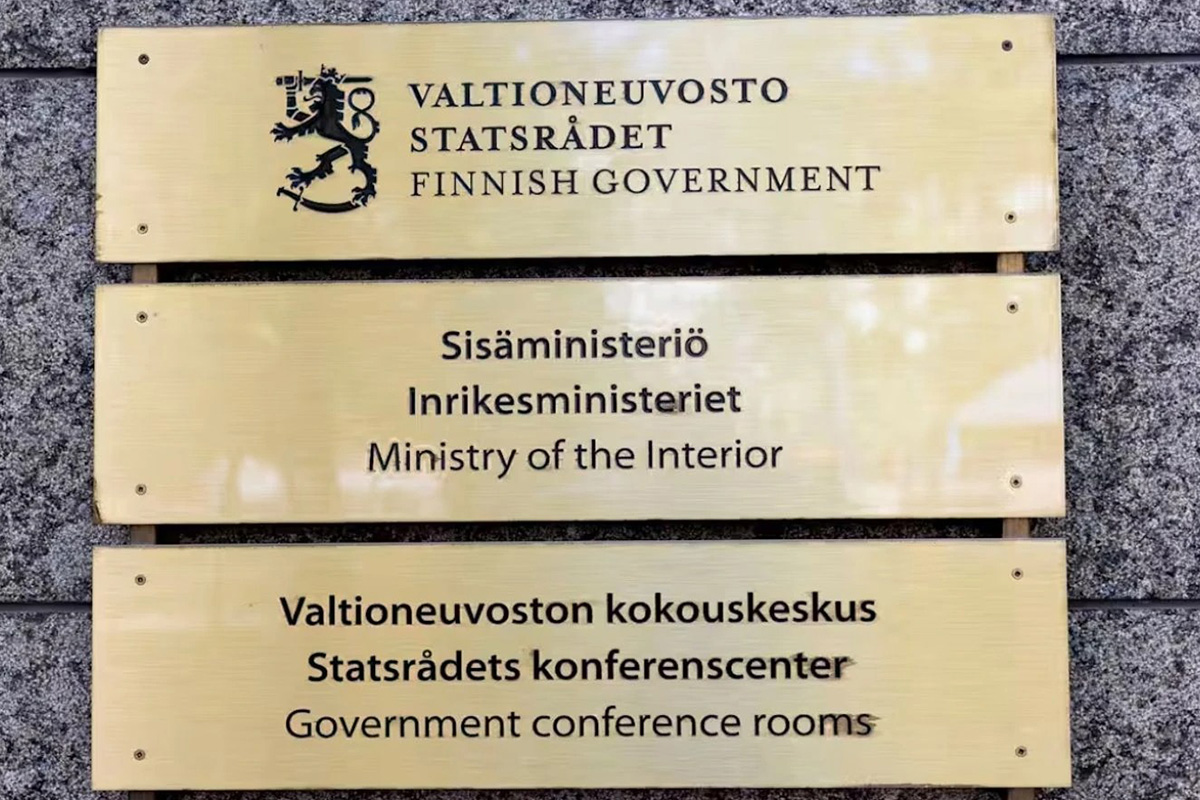
Finland’s Interior Ministry is examining whether scratchcards might once again be allowed as gifts.
The investigation will consider whether winnings from a scratchcard could be claimed by someone other than the person who purchased the card.
At the start of 2024, scratchcards were brought under mandatory identification rules. Since then, recipients of gifted cards have been unable to redeem any prizes they potentially offer.
Parliament approved a new Lotteries Act in December. At the same time, legislators included a statement urging the government to explore ways to permit scratchcards to be given as gifts.
Christmastime is traditionally the biggest season for lottery scratch card sales in Finland.
The post Finland Govt Looks at Whether Scratchcards can be Gifted Again appeared first on Eastern European Gaming | Global iGaming & Tech Intelligence Hub.
-

 BetPlay6 days ago
BetPlay6 days agoBlask Awards 2025: Betano, Caliente, BetPlay, Betsson and others define Latin America’s iGaming landscape
-

 iGaming6 days ago
iGaming6 days agoMajestic Claws Hold & Hit leaps into Spinomenal’s slots portfolio
-

 Canada6 days ago
Canada6 days agoComeOn Launches New Marketing Campaign in Ontario
-

 DEGEN Studios6 days ago
DEGEN Studios6 days agoDEGEN Studios brings Wild West chaos to the reels with Sunset Showdown
-

 Latest News6 days ago
Latest News6 days agoThrillTech partners with Nordplay Group to launch ThrillPots across Nordic-facing casino brands
-

 bingo halls5 days ago
bingo halls5 days agoBingo Halls and Casinos in Colombia Increased Their Contributions to Healthcare System by 9.3% in 2025
-

 Brightstar Lottery PLC5 days ago
Brightstar Lottery PLC5 days agoBrightstar Lottery Delivers Industry-Leading Sales Force Automation Solution to Ontario Lottery and Gaming Corporation
-

 Compliance Updates4 days ago
Compliance Updates4 days agoFinland Govt Looks at Whether Scratchcards can be Gifted Again





